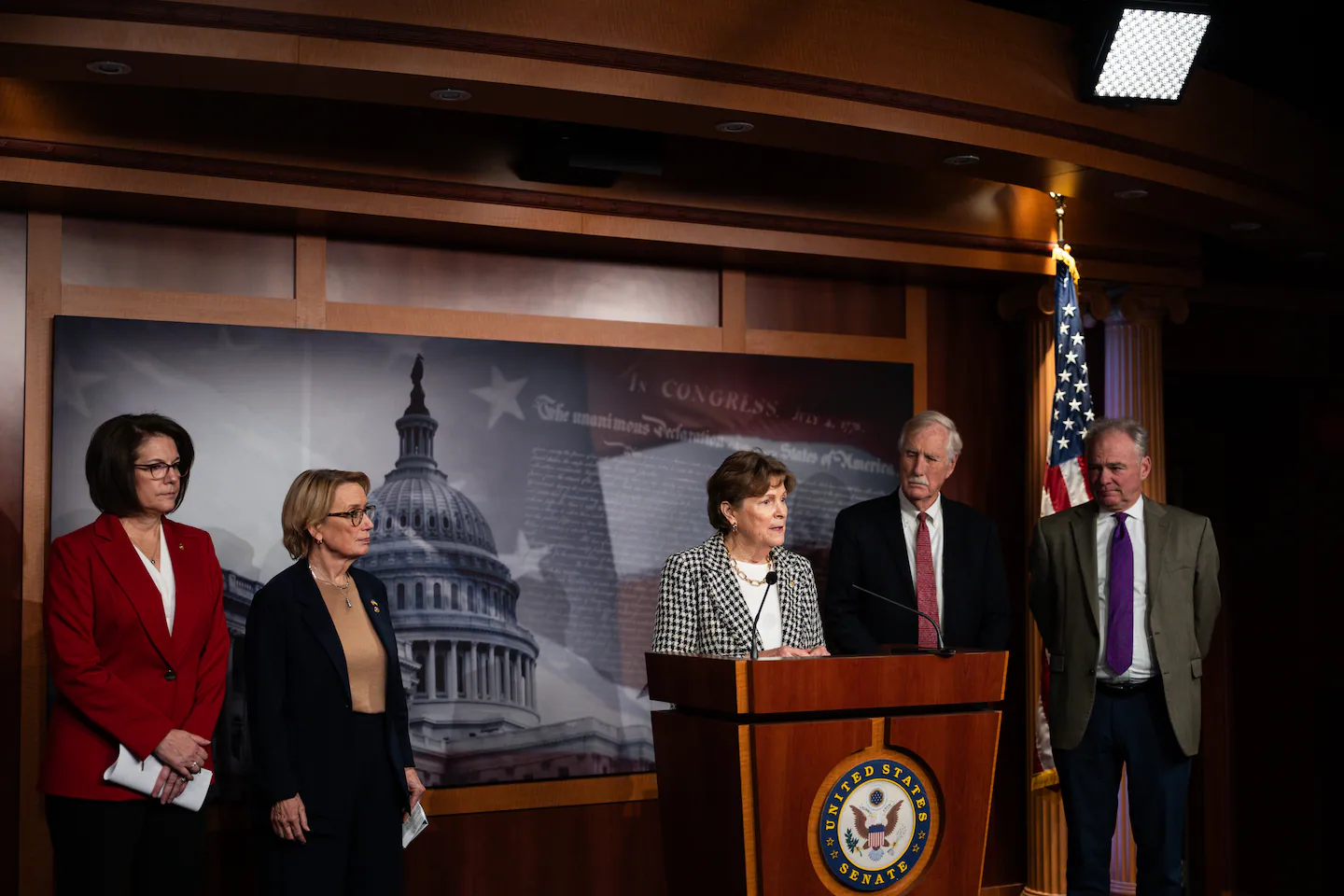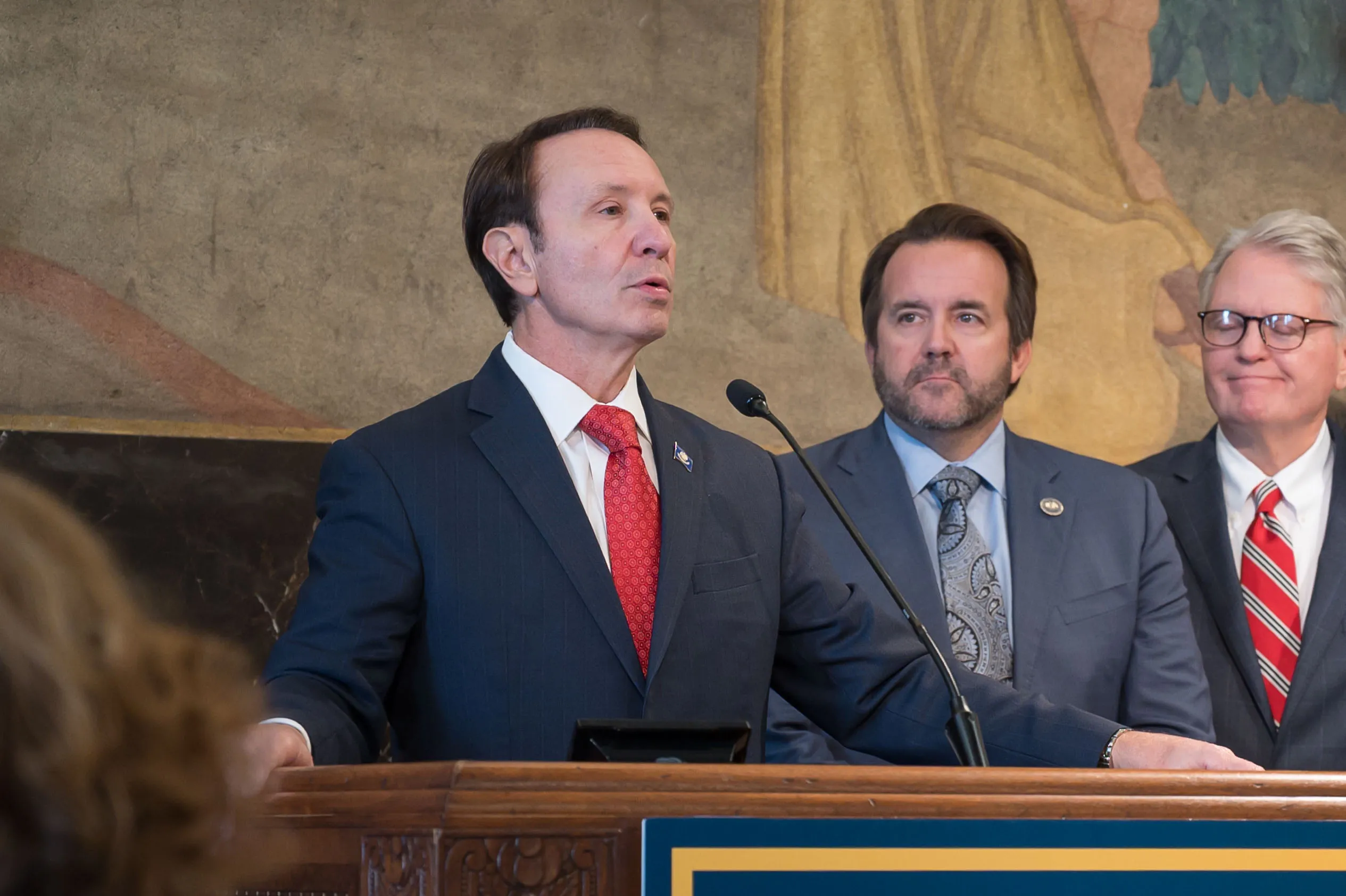Copyright The Boston Globe

The eight senators broke ranks with most of their party colleagues in accepting the deal, which falls short of Democratic demands to extend Affordable Care Act health insurance premium subsidies that expire at the end of the year. Thune, a South Dakota Republican, only promised to allow a vote next month on a still-to-be-drafted Democratic bill to extend the subsidies. Shaheen, who has been working to extend the subsidies for years, and other Senate Democrats still have more deal-making to do. They’ll have to find at least 13 Senate Republicans to go along with legislation to extend the subsidies. And that’s just the first hurdle on health care. Republican House Speaker Mike Johnson hasn’t even committed to a vote on such a bill, which will need GOP support in that chamber as well. The failure to secure an extension of health care subsidies in exchange for helping reopen the government led to intense criticism of those eight senators from the Democratic Party’s base. Words like “mistake,” “capitulation,” “pathetic,” and “betrayal” have been thrown in their direction since the breakthrough was announced Sunday. But the senators defended their deal. Hassan, a New Hampshire Democrat who was the state’s governor from 2013-17, said it includes several key provisions, including the rehiring of federal workers fired since the shutdown began on Oct. 1 (with back pay) and one-year of funding for federal food assistance that the Trump administration has been withholding since Nov. 1. The increasing pain faced by her constituents as the shutdown dragged on helped push Hassan to sign on to the deal. She said it was a necessary compromise because congressional Republicans and Trump were refusing to negotiate on the subsidies during the shutdown and Americans increasingly were suffering. For weeks, Republicans had been pushing a simple bill to fund the government through Nov. 21. But the new agreement involves extending federal funding for a full year for some agencies, including the Veterans Affairs Department, and for the rest of the government until Jan. 30. “People in New Hampshire, I think people in every state, whether it’s red, blue or purple, really want government to function,” Hassan told the Globe. “We need to make sure that things work. My experience as governor has meant that I understand how things play out on the ground and when Washington does or doesn’t do something, how it impacts my constituents in a very direct way.” Her New Hampshire colleague, Shaheen, who was the state’s governor from 1997-2003, had been holding back-channel bipartisan talks since before the shutdown began to try to extend the subsidies. For weeks, the discussions failed to gain traction as only three members of the Senate Democratic caucus — King, of Maine, John Fetterman of Pennsylvania, and Catherine Cortez Masto of Nevada— voted multiple times to advance the short-term Republican spending bill. Although Republicans have the Senate majority, they needed eight Democrats to advance legislation opening the government over a procedural hurdle. But pressure ramped up last week as the Trump administration used the shutdown to halt federal Supplemental Nutrition Assistance Program benefits for millions of low-income Americans and Transportation Secretary Sean Duffy ordered flight reductions at 40 high-volume airports because of absences by air traffic controllers who were not getting paid. Concerns about the impact of those policies, as well as the inability to see a path forward on extending the health care premium subsidies, added momentum to the deal-making. Another former governor, Virginia Democratic Senator Tim Kaine, joined the negotiations on Friday as he shifted his focus after the state’s gubernatorial race last week. “I joined this group to make sure that we could get important protections for federal employees,” Kaine told reporters Sunday, noting his state has about 320,000 federal workers. He successfully pushed to get Thune to agree to the protections for those workers, including a guarantee of no additional federal layoffs at least through Jan. 30. Senator Dick Durbin, an Illinois Democrat, said the addition of the federal worker protections and a full year of SNAP funding persuaded him to sign on to the deal. Extending the Affordable Care Act tax subsidies is a priority for all eight senators but Thune balked, leaving them with few options. Only able to secure a promise of a vote next month, the senators now must craft a bill that will get enough Republican support to pass the Senate and the House. It’s a tall task and King put the odds of success at no higher than 50 percent. But he said that’s better than what he considered a zero percent chance before the deal because the Republicans were not budging. “A good general, if the battle plan isn’t working, you change the battle plan ... especially if what’s happening is danger to your troops,” King, Maine’s governor from 1995-2003, said on CNN Monday. “And that’s what we’re talking about is danger to the American people in the service of a strategy that isn’t working and has no prospects of working.” Durbin was the only member of the Senate Democratic leadership to agree to the deal and to vote to advance the legislation. Senate minority leader Chuck Schumer, a New York Democrat, publicly opposed it. “Many of my friends are unhappy. They think we should have kept our government closed indefinitely to protest the policies of the Trump administration,” Durbin said on the Senate floor Monday. “I share their opinions of this administration but cannot accept a strategy which wages political battle at the expense of my neighbor’s paycheck or the food for his children.” None of the eight senators, which also included Nevada Democrat Jacky Rosen, are up for reelection next year. Durbin and Shaheen announced earlier this year they would not run again. Among the critics of the deal was Shaheen’s daughter, Stefany Shaheen, who is running for an open New Hampshire congressional seat. “Improving health care has been the cause of my life. It’s why I am running for Congress,” Stefany Shaheen said on X Monday. “So I cannot support this deal when Speaker Johnson refuses to even allow a vote to extend health care tax credits. Some Senate Republicans have said that they’re interested in finding a way to extend the subsidies. “I certainly hope and anticipate that there will be a bipartisan effort to come up with a bill that can pass that will ensure that those who need the subsidized tax credit ... will not face the prospect of unaffordable health insurance,” Senator Susan Collins, a Maine Republican told reporters Monday. But Collins said she would like to see some income limits on eligibility. Jeanne Shaheen said the deal to end the shutdown finally opens the door to having those kind of talks to prevent huge premium increases next year. “Americans expect and deserve elected representatives who can work across the aisle to solve problems,” she said in a statement to the Globe. “This deal ends the government shutdown, protects federal workers going forward and guarantees a vote to extend the ACA enhanced premium tax credits that tens of millions of people rely on for coverage.” Hassan noted the clock is ticking ahead of the mid-December Senate vote Thune promised. “We have a very narrow window of time now to put the Republicans feet to the fire,” she said. “All Americans need to stay in this fight to make sure that we get an agreement to extend these tax cuts. If we don’t, then the Republicans will be held accountable by the American people.”



